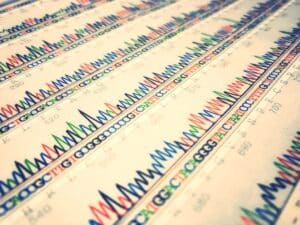This project will develop a software tool to rapidly look for metabolism anomalies in an individual which might be explained by their genes. It will also look for potentially damaging genes in individuals and it will attempt to group ME/CFS patients based on their genetic and metabolic profiles.
This project aims to create a tool that can quickly identify unusual metabolic patterns in individuals that might be linked to their genetic makeup. It will also search for genes that could potentially cause harm. Specifically, the tool will be used to classify patients with ME/CFS (Myalgic Encephalomyelitis/Chronic Fatigue Syndrome) based on their genetic and metabolic information.
The tool will be designed using data from over 1,000 people who reported having ME/CFS in the UK Biobank, which holds clinical data and blood samples from more than 300,000 individuals. By comparing these ME/CFS patients with others who have similar illnesses, we have been able to spot unique metabolic patterns that help identify ME/CFS in a person.
This new tool will be especially useful for doctors as it will make diagnosing ME/CFS faster and more accurate by spotting genetic and metabolic issues that might otherwise go unnoticed.

Open Medicine Foundation Australia Limited is registered as a charity with the Australian Charities and Not-for-profits Commission (ACNC). We are authorised by the Australian Tax Office as a deductible gift recipient (DGR). Donations of $2 or more are tax-deductible.
ABN 81 635 273 415



Open Medicine Foundation Australia Limited
C/O Accru Melbourne Pty Ltd
50 Camberwell Road
Hawthorn East VIC 3123
OMF Australia acknowledges the Traditional Custodians of the lands on which we operate, the Aboriginal and Torres Strait Islander peoples. We extend our respect to Elders past and present, recognising their enduring connection to country, knowledge, and stories.
Make the most of your donation by donating your Bitcoin, Ethereum, and other cryptocurrencies directly to OMF Australia rather than selling and donating the after-tax proceeds.
OMF Australia can accept cryptocurrency donations of any amount.
Donating cryptocurrency is a non-taxable event, meaning you do not owe capital gains tax on the appreciated amount and can deduct it on your taxes. This makes Bitcoin and other cryptocurrency donations one of the most tax-efficient ways to support your favorite cause. If you want to learn more about how donating crypto can lower your taxes, check out thegivingblock.com/faq.
Talk to a crypto-savvy tax professional or connect with The Giving Block to get connected with one.
We accept the following cryptocurrencies: Bitcoin (BTC), Ether (ETH), Litecoin (LTC), Bitcoin Cash (BCH), Zcash (ZEC), Gemini Dollar (GUSD), Basic Attention Token (BAT), Chainlink (LINK), 0x (ZRX), Storj (STORJ), Dai (DAI), Amp (AMP), The Graph (GRT), UMA (UMA), 1inch (1INCH).